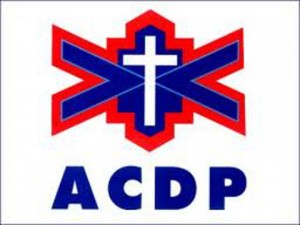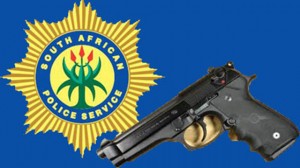MECs from various provinces
Members of Parliament
Judge Essa Moosa, Office of the DPCI Judge
Heads of Chapter 9 Institutions present
Representatives from sister departments
The Acting National Commissioner
Ladies and gentlemen
Thank you for taking time to share with us in this occasion, the launch of the Office of the DPCI judge. This launch is part of the series of launches to inform South Africans about this important institution.
Democracy, precisely because it is based on the will of the people, has many checks and balances built into it.
We are all too aware of how brutal the police were before democracy and the untold maimings, killings, pain and suffering that were visited on our people because of this attitude of being above the law.
Other organs of state also did the same – they made rules on the go and decided on what was right – irrespective of the international standards and truths assumed to be universal in democratic institutions.
Perhaps the Roman poet Juvenal did indeed foresee that the future would require a state wherein guards themselves had others watching over them – just to ensure that there is no abuse of power. His famous line in the poem from Satires asked in Latin: Quis custodiet ipsos custodes? This is roughly translated as: Who will guard the guardians?
In this day and age, this phrase is assumed to question and inform the dialogue on how power can and should be held to account because the converse means authoritarianism and fascism.
Research points to the sometimes incorrect attribution of this as a direct quotation from Plato’s Republic in both popular media and academic contexts. However, on further examination, there is no exact parallel in the Republic, but it is used by modern authors to express Socrates’ concerns about the guardians, the solution to which is to properly train their souls.
In our modern day democracy, this does not mean the Praetorian Guard in the strict sense but the systems of checks and balances built into the system to regulate itself.
And this is the basis and foundation of our modern democracy. This is the basis that saw the ANC’s Ready to Govern police documents that stated: The security institutions shall be bound by the principle of civil supremacy and subject to public scrutiny and open debate.
The robust debate that we are now having on most aspects of public life is a direct consequence of accepting that the civilian control should ultimately be supreme.
It is for this reason you have the Civilian Secretariat for the Police, Inspector-General of Intelligence and Chapter 9 Institutions.
This office of the Judge for the Directorate for Priority Crime Investigation – popularly known as the HAWKS – was established with the same intention in mind.
This Office is established in terms of Section 17L of the South African Police Service Act No: 68 of 1995 as amended (SAPS Act), to coordinate oversight over the investigations conducted by the DPCI.
Subsection 4 clearly states that:
The retired judge may receive complaints in the prescribed form and manner from-
- (a) any member of the public who can provide evidence of a serious and unlawful infringement of his or her rights caused by an investigation by the Directorate; or
- (b) any member of the Directorate who can provide evidence of any improper influence or interference, whether of a political or any other nature, exerted upon him or her regarding the conducting of an investigation.
This is a very pointed and clear tasking of the Judge, which would keep the functioning, and conduct of the Hawks within check. But there is no point in having this office if ordinary people do not know about it and cannot use its powers to keep the Hawks in check.
That is why the same legislation tasks the Civilian Secretariat for Police is in terms of Section 17L (15) to develop and implement a plan to raise awareness amongst the public and the members of the HAWKS on the functions and role of the Office of the DPCI Judge, hence the involvement of the Secretariat in the launch of the office of the DPCI Judge.
This is the reason that we are here today. It is the duty of every responsible citizen to educate members of the public of this crucial function and we know that our partners in the media would also help us in this regard.
Over the next few months, there will be a lot more steps to ensure that the office of this importance receives the kind of marketing that it deserves. We also hope that other organisations represented here will also take note and correctly refer appropriate complaints to this office to ensure that we fulfill not just the letter but also the spirit of this important part of the legislation.
With these few words allow me then ladies and gentleman to invite you again to be partners in ensuring the success of this office but more importantly, ensuring that we remain true to our noble idea of ensuring that power is held to account.
Thank you









